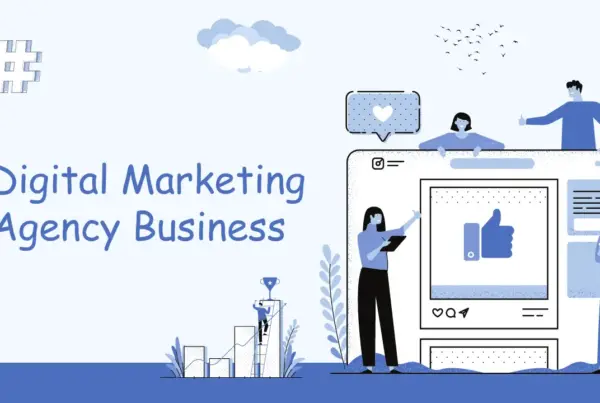Forming an online coaching business has become an open and profitable option for people with expertise in various fields. The demand for digital coaching services is skyrocketing in today’s digital era. And the chances to convey your knowledge and empower others have never been greater.
Whether you’re passionate about fitness, personal development, or entrepreneurship, making your precise coaching practice can empower you to share your knowledge.
However, launching a successful online coaching business demands more than just expertise. And it needs careful planning, technical know-how, creative strategies, and effective marketing.
Table of Contents
What is Online Coaching and Statistical Overview?
Online coaching is also known as e-coaching or virtual coaching. It’s a structure of coaching that functions remotely through digital platforms like messaging apps, email, phone calls, and video conferencing, in essence.
In contrast to customary face-to-face traditional coaching, it empowers clients and coaches to connect the globe from anywhere, transcending geographical perimeters and time zones.
How Does Online Coaching Work
Online coaching sessions typically follow a similar structure to traditional coaching sessions, with an initial consultation to establish goals, ongoing sessions to explore challenges and progress, and periodic reviews to assess outcomes.
However, the mode of communication and interaction may vary depending on the preferences of the coach and client.
Coaching sessions can be conducted via video calls, allowing for face-to-face interaction and visual cues that enhance communication and rapport-building.
Alternatively, coaches may utilize email or messaging apps for asynchronous communication, providing flexibility for clients to reflect on their thoughts and responses before engaging with the coach.
Statistical Overview
According to the Growth Market Report, the global online coaching market volume was $2.19 billion in 2022 and is estimated to set foot on approximately $6.79 billion by 2031, increasing at a CAGR of 13.4% during the forecast period (2023-2031).
A survey by Statista states that the online education market volume is expected to gain a revenue of $185.20 billion by 2024. It is calculated to show a growth rate (CAGR 2024-2028) of 8.61%, resulting in an estimated market volume of $257.70 billion by 2028.
How To Start An Online Coaching Business
In this step-by-step guide, we’ll walk you through the process of starting your online coaching business, complete with examples to illustrate each stage.
Step 1: Define Your Niche and Target Audience
Before diving into the world of online coaching, it’s crucial to specify your niche and target visitors. Think of your areas of expertise, as well as the passion and the issues you can figure out for your clients.
For example, suppose you’re a fitness enthusiast with a background in nutrition. In that case, your niche could be providing online coaching services for individuals looking to lose weight and improve their overall health.
Step 2: Conduct Market Research
Once you’ve identified your niche, you must undertake in-depth market research to comprehend your target customer’s demands, preferences, and pain points. Use tools like surveys, interviews, and online forums to gather insights.
For instance, if you’re targeting busy professionals seeking work-life balance, research their common challenges and desired outcomes to tailor your coaching services accordingly.
Step 3: Develop Your Unique Value Proposition
Differentiate yourself in the competitive online coaching landscape by developing a UVP (unique value proposition). Your UVP should undoubtedly communicate the strong points of performing with you, and why buyers should opt for your coaching services over others.
For example, if you’re a career coach specializing in helping millennials navigate job transitions, your UVP could be personalized coaching programs with actionable strategies for achieving career success.
Step 4: Create Your Coaching Packages and Pricing Structure
Based on your niche, target audience, and value proposition, create comprehensive coaching packages that address specific client needs and goals. Act on your cost value structure based on aspects such as the moral standards of your services, market demand, and competitor pricing.
For instance, if you’re offering a 12-week transformational coaching program, consider tiered pricing options with additional perks like exclusive resources or one-on-one sessions.
Step 5: Build Your Online Presence
Launch a professional online appearance to entice potential buyers and build credibility in your niche. Build a visually fascinating website that exhibits your proficiency, coaching packages, testimonials, and contact information. Boost your website’s search engine optimization (SEO) by adding pertinent keywords, meta descriptions, and top-rated original content.
For example, if you’re a mindfulness coach, create blog posts or videos sharing tips for reducing stress and enhancing mental well-being.
Step 6: Set Up Your Coaching Platform and Tools
Choose the right tools and platforms to deliver your coaching services effectively. Invest in video conferencing software for virtual coaching sessions, scheduling tools for managing appointments, and payment gateways for secure transactions.
For example, platforms like Zoom, Calendly, and PayPal offer user-friendly solutions for online coaches to connect with clients, schedule sessions, and process payments seamlessly.
Step 7: Promote Your Services and Generate Leads
Implement a multi-channel marketing strategy to promote your coaching services and attract clients. Use social media platforms, content marketing, email marketing, and networking to reach your target audience and generate leads.
For example, leverage Instagram or LinkedIn to share valuable content, engage with followers, and showcase client success stories. Offer free resources such as webinars, e-books, or mini-coaching sessions to reveal your mastery and develop trust with potential buyers.
Step 8: Launch and Iterate Based on Feedback
Once everything is in place, officially launch your online coaching business and start accepting clients. Also, get client feedback on a regular basis to learn about their level of satisfaction and pinpoint areas that need work. Based on client feedback and market trends, iterate on your coaching packages, marketing strategies, and service delivery.
For example, if clients express a need for additional support between sessions, consider offering email or messaging support as part of your coaching packages.
Step 9: Scale Your Business and Expand Your Reach
As your online coaching business grows, explore opportunities to scale your operations and expand your reach. Consider hiring additional coaches or outsourcing administrative tasks to handle increased demand. Explore partnerships, collaborations, or affiliate programs to reach new audiences and diversify your revenue streams.
For example, if you’ve built a successful health coaching business, you could partner with gyms, wellness centers, or corporate wellness programs to offer your services to their clients or employees.
Step 10: Continuously Learn and Evolve
Finally, commit to continuous learning and professional development to stay ahead in your field and deliver exceptional value to your clients. Attend workshops, conferences, or online courses to expand your knowledge, skills, and expertise.
Stay updated on industry trends, best practices, and emerging technologies to innovate your coaching offerings and stay relevant in the ever-evolving online coaching landscape.
By following these steps and staying committed to your vision, you can successfully launch and grow your coaching business, making a meaningful impact on your clients’ lives while building a fulfilling and sustainable career for yourself.
Reasons To Launch An Online Coaching Business
Embarking on the journey of starting an online coaching business is an exciting endeavor with numerous benefits. Here are some compelling reasons why launching your online coaching practice could be the best decision you ever make:
1. Flexibility and Freedom
As an online coach, you can opt for your flexible hours and work from any location with an internet connection. Enjoy the flexibility to balance work with personal commitments and pursue your passion on your own terms.
2. Reach a Global Audience
With the power of the internet, your coaching services can transcend geographical boundaries. Tap into a global market of potential clients, expanding your reach and impact beyond local constraints.
3. Fulfillment through Helping Others
There’s immense satisfaction in empowering others to achieve their goals and overcome obstacles. As an online coach, you’ll have the opportunity to make a positive impact on the lives of your clients, fostering personal and professional growth.
4. Low Overhead Costs
Compared to traditional brick-and-mortar businesses, starting an online coaching business requires minimal overhead costs. Say goodbye to expensive rent, utilities, and other overhead expenses, allowing you to maximize your profits.
5. Embrace Technological Advancements
There are a plethora of digital tools and platforms available to improve your coaching practice. Embrace innovative technologies such as video conferencing, online course platforms, and social media to deliver value to your clients effectively.
6. Work-Life Balance
Achieving a balanced, healthy work-life is necessary for overall good health and productivity. With online coaching, you can create a schedule that aligns with your lifestyle, prioritizing self-care and time with loved ones while pursuing your professional goals.
7. Continuous Learning and Growth
As an online coach, you’ll be continuously learning and growing alongside your clients. Stay curious, explore new topics, and expand your expertise to provide unparalleled value and stay ahead in your field.
8. Diverse Revenue Streams
Offer a range of coaching packages, online courses, workshops, and digital items to diversify your revenue sources. By leveraging multiple revenue streams, you can create a sustainable and resilient business model.
9. Build a Personal Brand
Establishing yourself as an authority in your niche enhances your credibility and attracts potential clients. Cultivate a robust personal brand through consistent messaging, valuable content creation, and authentic engagement with your audience.
10. Create a Legacy
Building an online coaching business allows you to leave a lasting legacy by positively impacting the lives of others. Inspire and empower future generations of coaches and clients, leaving behind a legacy of transformation and empowerment.
Starting a digital coaching business offers a plethora of opportunities for personal, professional, and financial fulfillment. Whether you’re driven by a passion for helping others, seeking freedom and flexibility, or embracing technological advancements, launching your online coaching practice can be a rewarding and transformative journey.
Top Advantages of Online Coaching
Online coaching offers several advantages over traditional coaching methods, making it an attractive option for clients and coaches alike:
Convenience
Clients can attend sessions from the convenience of their homes or businesses using online coaching, which removes the need for travel. This convenience saves time and reduces logistical barriers, making coaching more accessible to individuals with busy schedules or limited mobility.
Flexibility
With online coaching, clients can schedule sessions at times that suit their schedules, regardless of time zone differences. This flexibility accommodates diverse lifestyles and work commitments, empowering clients to prioritize their personal development without sacrificing other responsibilities.
Accessibility
It is indeed true that geographical boundaries are eliminated with online coaching, allowing clients to work with coaches worldwide. Clients may locate the coach that best suits their needs and preferences thanks to this access to a wide pool of instructors, regardless of geography.
Privacy
Online coaching offers a level of privacy and anonymity that may be preferred by clients who are uncomfortable with face-to-face interactions or hesitant to seek support in their local communities. This confidentiality fosters a secure and encouraging setting for open and honest dialogue.
Cost-Effectiveness
Compared to traditional coaching, online coaching often comes at a lower cost due to reduced overhead expenses. This affordability makes coaching more accessible to individuals from diverse socioeconomic backgrounds, democratizing access to personal and professional development resources.
To summarize the online coaching’s benefits, it’s a dynamic and versatile approach to personal and professional development that leverages digital technology to connect clients and coaches remotely.
With its convenience, flexibility, accessibility, privacy, and cost-effectiveness, online coaching offers a compelling alternative to traditional coaching methods, empowering individuals to unlock their full potential and achieve their goals from anywhere in the world.
Extra Tips for Growing Online Coaching Business
In this segment, we’ll delve into every aspect of starting and growing your online coaching venture, from market potential to scaling operations.
Market Potential
Before diving into the world of online coaching, it’s crucial to assess the market potential in your niche. Conduct thorough market research to identify your target audience, their pain points, and the competitive landscape.
Analyze trends, consumer behavior, and demographics to understand the demand for your coaching services. Use tools like Google Trends, keyword research, and industry reports to gather insights that will inform your business strategy.
Technical Expertise
Launching an online coaching business requires a solid understanding of digital tools and platforms. Choose a reliable hosting service for your website and consider using content management systems like WordPress for easy customization.
Invest in a user-friendly interface that facilitates seamless interaction with your clients. Additionally, familiarize yourself with video conferencing software, email marketing platforms, and payment gateways to streamline communication and transactions.
Creative Flair
Setting yourself apart in the crowded online coaching market requires a (USP) unique selling proposition and creative flair. Create a distinctive brand identity that speaks to your target market and embodies your beliefs.
Craft engaging content that showcases your expertise and establishes credibility in your niche. Incorporate multimedia elements like videos, podcasts, and infographics to make your coaching programs more interactive and immersive.
Operational Plan
An effective operational plan is essential for the smooth functioning of your online coaching business. Define your coaching packages, pricing structure, and delivery methods to provide clarity to your clients.
Establish clear communication channels and set expectations regarding response times and availability. Create standardized processes for onboarding clients, scheduling sessions, and handling inquiries to ensure consistency and efficiency in your operations.
Scaling Operations
As your online coaching business grows, scalability becomes a priority. Automate repetitive tasks such as appointment reminders, billing, and client follow-ups to free up time for high-value activities.
Delegate non-core functions to virtual assistants or outsourcing partners to focus on business development and client engagement. Continuously evaluate and optimize your processes to accommodate increasing demand and maintain service quality.
Marketing and Promotion
Effective marketing and promotion are essential for attracting clients and expanding your online coaching business. Develop a comprehensive marketing strategy that encompasses content marketing, social media, email campaigns, and search engine optimization (SEO).
Create valuable content that addresses your audience’s needs and pain points, positioning yourself as a trusted authority in your field. Leverage social media platforms, online communities, and influencer partnerships to reach a wider audience and drive traffic to your website.
Final Thought
Starting an online coaching business offers limitless opportunities for growth and impact. You can build a thriving coaching practice that transforms lives and generates sustainable income by leveraging your expertise, technical know-how, creativity, and strategic planning.
Stay adaptable, embrace innovation, and always prioritize delivering value to your clients. With dedication and perseverance, you can turn your passion for coaching into a lucrative and fulfilling online venture.





After reading your content, investing in an online coaching business was the best decision I ever made. My business is growing significantly.